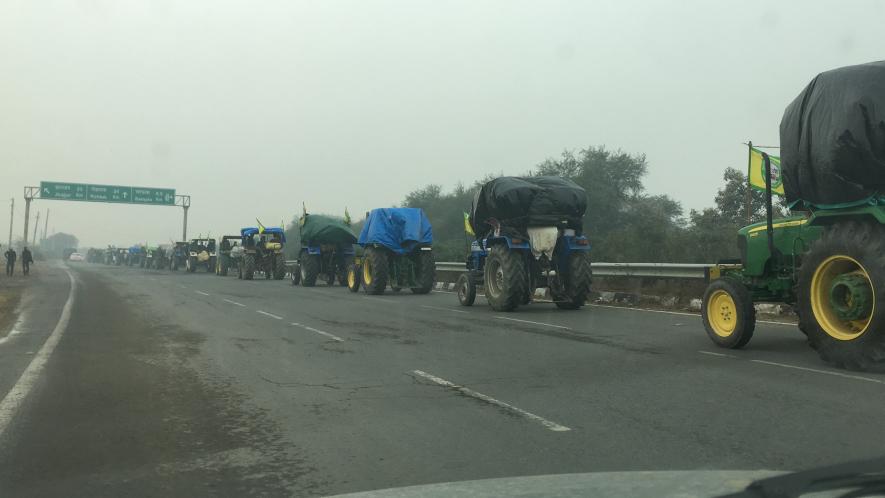INDIA
Farmers Protest 2.0: Preparation on for a Long Movement Demanding MSP Legal Guarantee

File Photo
Days before many farmer groups in Punjab and Haryana will march to Delhi, they are gearing up for a long haul to fulfil the long-pending demand of enacting a legislation on the minimum support price for crops, among others. The Bharatiya Janata Party-led Centre had promised the implementation of MSP following the year-long protest from 2020-21.
On February 13, approximately a hundred farmers' unions, organized by the SKM (non-political) and KMM, are set to undertake the 'Dilli Chalo' march. Three days later, on February 16, the Samyukta Kisan Morcha (SKM) has called for a nationwide "Grameen Bandh."
The February 13 march has been called by the SKM (non-political) and KMM. An offshoot of the Samyukta Kisan Morcha, SKM (non-political) says it is a body of over 150 farmer unions from across the country and its coordinator is Jagjit Singh Dallewal. The SKM, an umbrella organisation of nearly 500 farmer unions, is not part of the ‘Dilli Chalo’ protest.
Farmer unions argue that the Centre has failed to honor its commitment to legally guarantee MSP, a resolution reached at the conclusion of the 2021 protests on Delhi borders.
While the government announces MSP for 23 farm produces before the rabi and kharif seasons, actual procurement is limited to two key crops—paddy and wheat—in specific regions, namely Punjab, Haryana, and parts of Western UP, as per the Telegraph’s report.
After waiting for two years for the government to act, farmers are now resolved to get their demands met through a protest ahead of the Lok Sabha elections. They are sticking to their action plan even after the first round of talks taking place between farmer union leaders and Union ministers Piyush Goyal, Arjun Munda and Nityanand Rai in Chandigarh on Thursday night.
BKU (Krantikari) president Surjit Singh Phul told the Tribune, “We are fully prepared to go to Delhi on February 13. On Thursday, we held a meeting with Union ministers who gave us an assurance regarding our demands and said these were justified. However, we don’t need assurances, we want our demands to be fulfilled.”
In anticipation of a prolonged struggle, akin to the previous one, farmer organizations are mobilizing resources by collecting ration and funds through door-to-door campaigns, the Tribune reported. They are stockpiling supplies for six months, forming village teams, and organizing tractor marches to garner support for the impending protest.
Additionally, farmers plan to utilise tractors to transport essential items such as gas stoves, cylinders, utensils, mattresses, clothes, and tarpaulin. Villagers are urged to send at least one representative from each household for the march.
The farmers' demands encompass crucial issues that have fuelled their agitation. Foremost among these is the insistence on a legal guarantee for the minimum support price (MSP) and debt waivers for farmers, addressing the economic challenges they face. Furthermore, the implementation of the recommendations laid out by the Swaminathan Commission is emphasised, aiming to ensure fair remuneration and sustainable agriculture practices. They have also given a call for the withdrawal of cases against farmers related to protests and decisive action against those accused in the Lakhimpur Kheri violence. These demands collectively form the core agenda driving the farmers' mobilisation efforts.
According to The Indian Express, Police are on high alert in Punjab and Haryana; they are tracking the farmers’ movements ahead of the protests. At the Shambhu border, the Haryana side has put boulders to stop the farmers’ movement while Punjab has erected temporary barricades.
On February 16, the SKM plans to observe the bandh in coordination with trade unions, industrial unions, bank employee unions, transport employees, government employee associations, and various other groups.
No comments:
Post a Comment